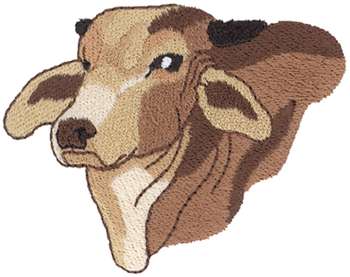
V.V. Raman is an emeritus professor of Physics at the Rochester Institute of technology, and has written a number of works on science and religion, his Indian heritage, and other subjects relating to the history of science, and the relation of the sciences to the humanities. Also, he’s a poet.
Watch his interview by Dr. Robert Lawrence Kuhn here (click the blue button) and read my take below.
Raman points out that in Hinduism this question “Is God a Self?” is considered an important question. In the Hindu context, this is a dispute about the nature of the ultimate being that the Upanishads talk about: Brahman.
He might have added that it is a much debated question. (Heavyweight round: Sankara vs. Ramanuja.) But he doesn’t mention the opposition – he gives the Advaita Vedanta school’s answer as “the” Hindu answer. Fair enough; this is the view of most Hindu intellectuals in recent times.
One should be aware, though, that “Hinduism” isn’t so much a religion as a term for (my definition) religions indigenous to the Indian subcontinent which are neither Buddhism nor Jainism. It is notable that the term “Hinduism” only came into popular use when Indians reasserted their own tradition against their British, Christian overlords in the 19th c. Further, some great Hindu thinkers are clearly theists or panentheists, who think that God is a self. But what does Raman say?
“The divine is an abstract principle” which yet “has a personal dimension” through which we can “experience the divine”. So the answer is: no, God is not a self. But, God is self-like in some way. (But see the end of the post for an important qualification.) This is similar, broadly speaking, to what Christian social trinitarians say.
But it what way is God “personal”? In what does God’s “personal dimension” consist? God is available, to the less advanced anyhow, through images – pictures, statues. These representations – like Shiva here – which help one to think about God are “personal” in that they represent and resemble human beings, or embodied human persons. This is not sinful idol worship, in his view, for it is the divine which is being worshiped, not the statue or picture.
“The abstract divine principle” is Brahman, which he says has two “natures” or “levels” – nirguna brahman – Brahman without attributes, ineffable, and saguna Brahman – Brahman with attributes, perfections such as omnipotence, omniscience, omnipresence. The former is the “highest” – I take it, this is how Brahman is in itself.
Despite what was just said, this higher Brahman is a unique “Cosmic Experiencer”, in other words, one Self inhabiting all things. He describes it is “Pure Awareness” or “Pure Consciousness”.
Kuhn rightly presses for some clarification. He points out that in theism, worshipers relate person-to-person to God. Does this work in Hinduism?
Raman anwers: yes. But this sort of devotion is merely one aspect of religiosity, one gets a deeper understanding of Brahman through meditation, leading to special, non-cognitive experiences (he doesn’t say this last though). The I-thou approach to God is to be cast off, he briefly suggests, by the more advanced. And this, I submit, is because in the end, for Advaita Vedanta Hindu theology, God is not a self. God is instead an attributeless, ineffable, simple, “pure consciousness”.
At the end, he suggests that we ought not limit ourselves to any one conception or experience of God. This probably makes sense, given his anti-realism about religion. Elsewhere, he says:
In the Hindu framework, monism (advaita: non duality) refers to the tenet that ultimately there is no distinction between the individual experiencing entities (jeevaathmans) and the cosmic experiencing entity (paramaathman).
As I see it, monism is the philosophical conviction that there is only one ultimate reality which manifests itself in countless modes. This seems reasonable, but I also regard this as an aesthetic predilection which may or may not have objective validity.
Religious anti-realism is a big subject; basically, it is the view that the real point of religion doesn’t require that traditional religious doctrines be all or mostly true. It is fair to say that most traditional believers, Christian, Hindu, and otherwise, reject this. Or rather – they’ve barely thought of it, but would reject it if they did.
In the end, I think Raman’s view is that he finds it more agreeable to regard God as something other than a self, but that others may differ in their preference. If this is right, then in a sense, he has declined to answer the question.


interesting
Comments are closed.